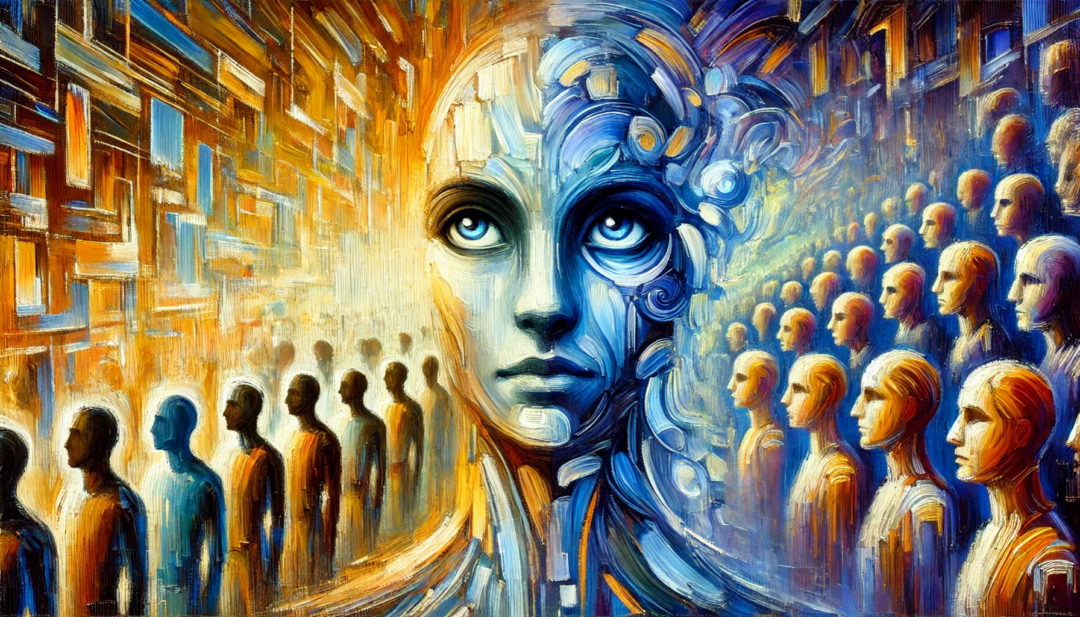This is a thought piece. Nobody knows how markets will evolve, and this is not investment advice.
The Spark
Every so often, someone raises the possibility that artificial intelligence could transform financial markets. What if an AI became so good at trading that it could consistently beat the S&P 500, long or short, in any environment? Would hedge funds armed with these models dominate markets? Would passive investing collapse? Could the S&P 500 even “stop going up”?
These are fascinating questions — and while the future is uncertain, it’s worth teasing apart what could (and could not) happen.
Markets Price In Information
The first principle to keep in mind is that markets are information-processing machines. If a pattern is obvious and exploitable, it usually disappears once enough traders act on it.
That’s why most edges don’t last forever: as soon as a trading strategy becomes widespread, its profits are competed away. This is true whether the strategy is based on simple chart patterns, sophisticated quant signals, or the latest AI model.
Short-Term Advantages vs. Long-Term Reality
Could AI hedge funds vastly outperform for a period? Absolutely. If a model can see patterns others miss, or trade faster and more effectively, it can capture profits. Early high-frequency traders and quant funds did exactly that.
But in the long run, competition erodes most advantages. Other firms catch up, new tools spread, and alpha fades. Markets adapt.
And the upward trend of the S&P 500 is tied not to trading strategies but to the underlying economy. As long as companies grow, innovate, and earn profits, their collective value tends to rise. AI may change who captures trading gains in the short run, but it doesn’t eliminate economic growth.
The Passive Investing Question
Passive investing works because active managers, as a group, are the market. They set prices, while passive funds simply ride along at low cost.
If AI makes markets more efficient, passive investing arguably becomes more attractive, because the chances of beating the market shrink further. The only scenario where passive would truly “end” is if some active players could permanently and massively outperform.
Where Things Get Interesting: Exclusive Data
Now, here’s the twist: what if a firm trains an AI on data only they have, and never releases the model?
That could change things. If a giant like JPMorgan, BlackRock, or Citadel had unique transaction flows, alternative datasets, or proprietary order book information, they might train an AI that others simply can’t replicate. That could mean:
- A durable edge that doesn’t vanish quickly.
- Outsized profits for a handful of firms.
- A more oligopolistic financial world, where a few players skim most of the alpha.
This isn’t science fiction. Renaissance Technologies has been doing something like this for decades with non-AI quantitative models. AI could widen the gap further.
Natural Limits
Even then, there are brakes on the idea:
- Scale: The bigger the fund, the more its own trades move the market.
- Regulation: Dominance by one or two firms would invite scrutiny.
- Arms race: Other giants also have unique data — meaning multiple AI titans might emerge, not just one.
So rather than “the end of passive investing,” what’s more plausible is a world of co-existence: passive funds still track the market’s long-term growth, while a few powerful AI-driven players capture a bigger share of short-term profits.
The Big Picture
Nobody knows how this will play out. AI may speed up information assimilation, reduce small inefficiencies, and introduce new risks (like flash crashes or herding). It may also create temporary windfalls for those who get ahead.
But the fundamentals of markets remain:
- Competition erodes open edges.
- Long-term equity returns are tied to economic growth.
- Passive investing thrives precisely because active managers — human, quant, or AI — are the ones setting prices.
Closing Thought
So: could AI “end” passive investing? Probably not. Could it supercharge some hedge funds for a time, and maybe even entrench a few finance giants if they control unique data? Quite possibly.
But one thing is certain: nobody knows for sure. And that uncertainty is exactly what makes this such a fascinating thought experiment.
Discover more from Brin Wilson...
Subscribe to get the latest posts sent to your email.



